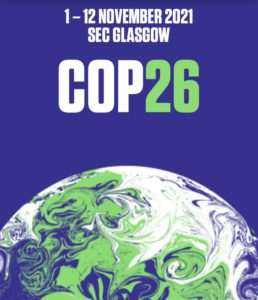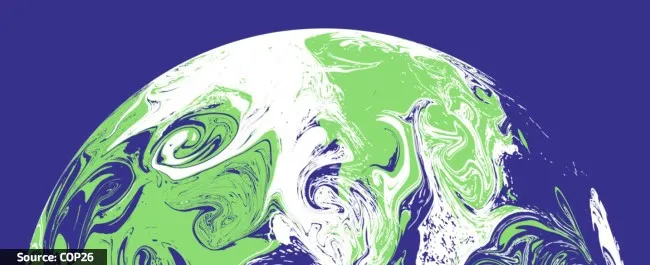FPDN CEO Damian Griffis made a statement last night to The 26th UN Climate Change Conference in Glasgow. Damian spoke to the impact of climate change on First Peoples of Australia’s ongoing connection to country and culture and the catastrophic consequences climate change presents for First Peoples with disabilities.
You can read Damian’s statement in full below.
My name is Damian Griffis I am a proud descendant of the Worimi and Biripi people of the Wallamba Valley in the state of New South Wales on the east coast of Australia. The Worimi and Biripi people are of the saltwater and the valleys. Our Worimi and Biripi totems include the dolphin and the bat. Our land is predominantly coastal and was bountiful. We have been part of our land since the Dreamtime, since time immemorial.
I also proudly carry in me Scottish ancestry from the Highlands and Scottish Islands. 
I am the Chief Executive Officer of the First Peoples Disability Network Australia a national organisation representing Indigenous Australians with disability and their families. Our organisation is a unique one in that we are governed by Indigenous Australians with disability and each of our staff are Indigenous and disabled or they have a close personal connection with disability. Like many other Indigenous communities around the world we have a high prevalence of disability often caused by preventable health conditions. Indigenous Australians have a life expectancy of at least 10 years less than the rest of the Australian population. The majority of Indigenous Australians live in poverty. We say here in Australia that it is difficult to think of any more disadvantaged Australians then Indigenous Australians with disability because they often face the intersectional discrimination of disability and racism. And we say that meeting the needs of Indigenous Australians with disability is one of the most urgent and critical social justice issues. In Australia today.
Whilst we are coming to the end of our day here, another new critical day is ahead of everyone there in Glasgow. From here in Australia we are only too aware of how important the proceedings will be in Glasgow in the coming days. We send our best wishes to everyone there. I would like to pay special thanks to Kera Sherwood-O’Regan and to Jason Boberg for the opportunity to say a few words today and acknowledge the great leadership they provide and the great work of the organisation Sustained Ability in giving voice to people with disability.
As is custom here we like to acknowledge the traditional owners on whose land we are speaking from. So I would like to acknowledge the Dharug people, the traditional owners of the lands of Western Sydney where I am speaking to you from. I would also like to acknowledge our elders, past, present, and emerging, and pay special respect to two of our founding elders Uncle Lester Bostock and Aunty Gayle Rankine who were fearless leaders for our people with disability. And also acknowledge the traditional owners on the lands of all of those who are listening in today.
Australian’s First Peoples are the oldest continual culture in the world. Just as we are thought leaders on disability inclusion demonstrated by the fact we have no comparable word for disability in our traditional languages we are also thought leaders on protecting and caring for the country. Much of our country can be dry and harsh for those who don’t know how to live with it. We have lived and loved our country for more than 60,000 years. We have lived with the land not against it or in opposition to it. We have shared it and lived off it. We have learned from it, it has shaped us and it continues to talk to us. Today our country is screaming loudly, our bushfires burn in more furious and dangerous ways, killing countless animals and scorching our land. Taking with it lives and livelihoods and places of great cultural significance. Our Torres Strait Islands are subject to rising sea levels like that experienced by our friends across the Pacific. Our storms are becoming more frequent and unstable. Our old people talk of how our seasons have changed. We feel firsthand the devastation of climate change across our vast country. We are long past time to act and we have been beholden to a self-serving politic in Australia that places us at the very rear of most nations in terms of acting on climate change.
The consequences of climate change for our people with disability is a matter of life and death. Already Australians with disability have died in our bushfires because they cannot easily escape the flames that rush and roar at impossible speed. Our floods are more frequent and dangerous, risking our people with disability being trapped and unable to be rescued. Our droughts are becoming more frequent and longer-lasting. There are many of our communities particularly in the more regional and remote parts of Australia that do not have access to a reliable water source. Our regional and remote communities experience food insecurity and require water to be shipped to them. This is the reality of life for many Indigenous Australians today, it is not the future it is today. The health consequences of food insecurity and lack of clean water for our people with disability means there life expectancy is further diminished. And a future that likely means more power shortages puts the lives of our people with disability in clear and present danger. For those of our people that are dependent on a reliable and safe electrical supply because of the nature of their disability such as the use of respirators for example their lives are at risk.
For our culture the consequences of climate change have meant that some of our rivers have dried up. Our rivers being the places of learning, and culture and connection and joy are no longer there or in danger of disappearing. These things have never happened before.
But we have the answers, just as we have always understood disability as part of the human experience and we have always valued and respected the role of each individual in our collective lives, we also understand how to care and love country.
We understand how climate works because of our innate connection to country. We are part of the land, the land is us. Our traditional birth names came from the land, from the places we were born. We know how to heal country. And our country like much of the world today needs to heal urgently. And our people with disability are the knowledge holders of this healing. We are not bit players, our people are thought leaders on climate change and our young people with disability have the knowledge and wisdom in them to create the right future. We say change comes from the knowledge and wisdom of Indigenous peoples across the world and that it is well past time for governments to get out of the way and recognise this knowledge and wisdom.
Thank you


Recent Comments